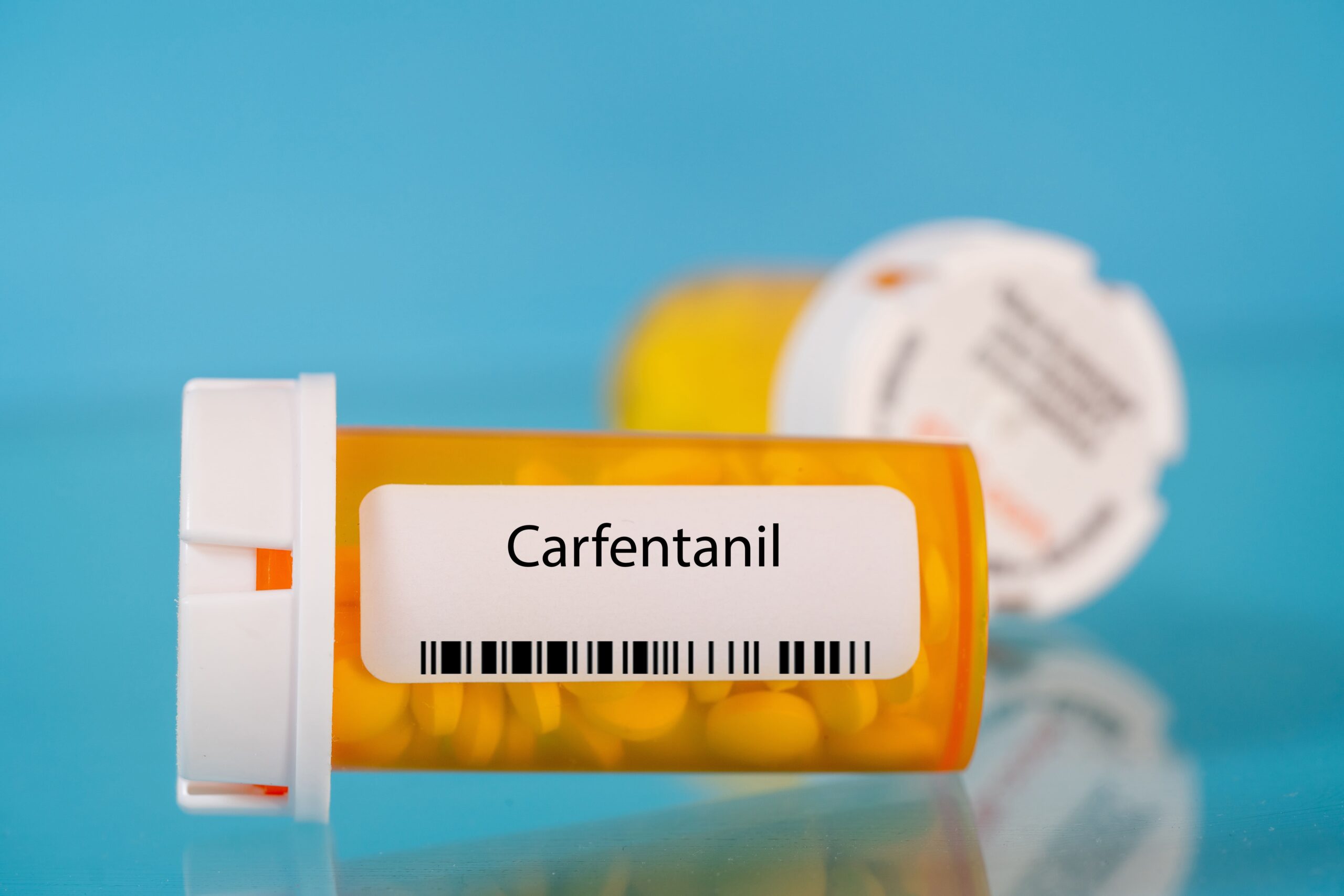Carfentanil is a synthetic opioid that is 10,000 times more potent than morphine, 100 times stronger than fentanyl, and is commonly used as an elephant tranquilizer. Due to its extreme potency, carfentanil poses significant dangers when abused.
It is crucial to understand the risks associated with carfentanil abuse, including overdose and addiction. Learning about the withdrawal process is equally important to prepare someone for the start of their recovery journey.
An Overview of Carfentanil Abuse
Carfentanil abuse has become a growing concern due to its high potency and potential for lethal consequences. Despite initially being developed as an animal tranquilizer, people abuse carfentanil due to the drug’s powerful effects. Even though small amounts can cause both fatal and non-fatal overdoses, it does not deter them from using it.
Individuals who abuse carfentanil can experience a range of adverse effects, including respiratory depression, sedation, dizziness, confusion, and unconsciousness. Long-term abuse leads to physical dependence, increased tolerance, addiction, and increased risk of overdose.
Additionally, illicit drug manufacturers have started using carfentanil in place of fentanyl because it is cheaper. In certain cases, people have no idea they are using carfentanil until they are hooked on it.
How Lethal Is Carfentanil?
Carfentanil is an extremely lethal synthetic opioid. It is estimated to be about 100 times more potent than fentanyl and 10,000 times more powerful than morphine. Even a tiny amount of carfentanil can cause an overdose, respiratory depression and failure, and death.
Carfentanil Abuse Versus Fentanyl Abuse
Carfentanil and fentanyl are both synthetic opioids that belong to the same chemical class. However, they differ significantly in terms of potency and uses. Carfentanil is estimated to be 10,000 times more potent than morphine. Fentanyl, on the other hand, is 100 times more potent than morphine.
The drug is primarily used as an animal tranquilizer or sedative for large animals like elephants. Fentanyl is a potent synthetic opioid typically prescribed to manage severe pain, such as cancer-related pain or post-surgical pain.
It poses a significantly higher risk of overdose and death compared to fentanyl. However, the high risk of overdose from fentanyl should not be ignored since fentanyl can be just as deadly. Additionally, illegally manufactured fentanyl has become a significant contributor to the opioid crisis due to its widespread availability and low cost. Professional detox in a qualified facility is ideal for eliminating withdrawal symptoms and addictions to these potent opioids.
Who Is Most at Risk for Carfentanil Addiction?
- Individuals who are most at risk for carfentanil addiction include:
- Those with a previous history of substance abuse or addiction
- Individuals with a high tolerance to opioids
- Those with access to carfentanil
- Individuals looking for a more intense high than found with other opioids
- People struggling with mental health disorders who self-medicate with opioids
- Individuals who experience chronic pain and find other opioids no longer seem to work
Carfentanil Withdrawal Symptoms
Withdrawal from carfentanil is a challenging and potentially life-threatening process. When individuals attempt to stop using the drug, they are likely to experience severe withdrawal symptoms. These occur as their body adjusts to the absence of the substance. Carfentanil detox is key in managing and reducing harsh withdrawal symptoms.
Common carfentanil withdrawal symptoms vary in intensity based on frequency and duration of use and dosage taken, and may include:
- Severe cravings for the drug
- Anxiety and restlessness
- Agitation
- Muscle aches and pains
- Fatigue or exhaustion
- Difficulty sleeping
- Nausea, vomiting, diarrhea, and stomach cramps
- Depression
- Mood swings
Since withdrawal from carfentanil can be intense, medical supervision is often required.
Recognizing A Carfentanil Overdose
Recognizing a carfentanil overdose is crucial for prompt intervention and potentially saving someone’s life. Given the extreme potency of carfentanil, an overdose can occur rapidly and be life-threatening.
One common sign is shallow, slow breathing, or complete respiratory distress. Another sign to look for is extreme drowsiness or loss of consciousness. Constricted pupils, cold, clammy skin, profound confusion, and disorientation are other signs to be aware of.
Generalized weakness or a limp body often indicates someone has overdosed. It is vital to seek medical attention immediately, as quick medical care could potentially reverse the effects of the overdose.
Detox for Carfentanil Abuse
Detoxing from carfentanil abuse is the first step in recovery. A supervised medical detox program provides a safe environment for individuals to withdraw from carfentanil under close monitoring.
The goals of detox include managing withdrawal symptoms, providing emotional support, ensuring physical stability, and preparing for ongoing addiction treatment.
Here are some steps that may be involved in the detox process:
- Healthcare professionals will conduct a thorough medical assessment and any underlying medical issues that need attention.
- The individual may be given MAT (medication-assisted treatment) to help manage withdrawal symptoms and cravings.
- A supportive environment that includes proper nutrition, hydration, rest, and exercise to aid in the overall recovery process.
- We provide and develop a comprehensive aftercare plan to prevent relapse post-detox. This often involves transitioning to a rehab program for ongoing therapy and other support services tailored to the individual’s needs.
Additionally, services like individual counseling and group therapy sessions are available to provide emotional support to individuals going through detox.
Start Carfentanil Detox in Pompano Beach, FL Today
Take the first step towards recovery and start your carfentanil detox journey at Retreat of Broward in Pompano Beach, Florida. Our caring, compassionate, and experienced professionals provide personalized and comprehensive care in a safe and supportive environment.
Contact us today to begin your path to healing and a drug-free future.
















